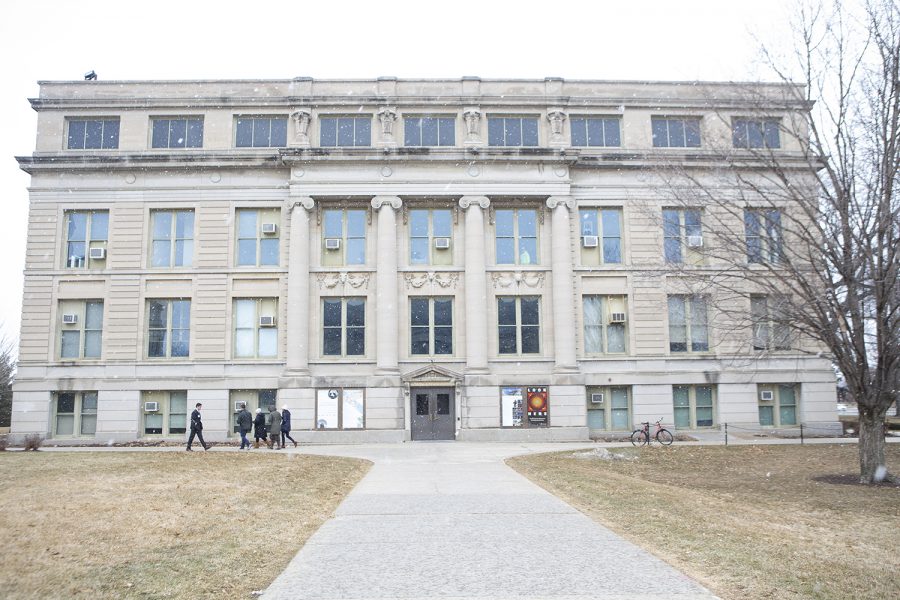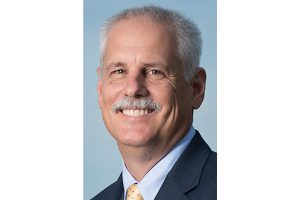UI Anthropology Department celebrates 50 years of education, research
The University of Iowa Department of Anthropology is celebrating 50 years of education and research. A series of lectures, events, and festivities will kick off on Feb. 28 with guest speaker James Watson, UI grad and Professor Emeritus at Harvard University.
Macbride Hall is seen on Wednesday, Feb. 19, 2020.
February 20, 2020
As the University of Iowa Anthropology Department prepares to celebrate its 50th anniversary, a series of guest speakers and faculty are reflecting on the program’s evolution and looking toward the future.
When department leaders realized it was approaching an anniversary a year ago, UI Anthropology Professor and Department Chair Katina Lillios made it her mission to honor the landmark achievement after she assumed leadership in August 2019. The series of events will kick off soon on Feb. 28.
With globalization and a world that is increasingly interconnected and interdependent, an understanding of people and culture remains critical, she said.
“Anthropology is kind of a holistic study of human cultures and behaviors of the past and the present,” Lillios said.
Lillios added that many different people were involved with the founding of the UI department, which used to be joint with sociology. A primary force in its foundation, she said, was former UI Professor June Helm, president of the American Anthropological Association.
Since then, the department has evolved rapidly to include all four disciplines of anthropology — cultural, biological, linguistic, and archeological.
UI anthropology Professor Emeritus Michael Chibnik focuses on cultural anthropology and began at the UI in 1978.
“Over time, the department has had different specialties depending on who’s here,” Chibnik said.
RELATED: ‘Ancient Perspectives, Modern Eyes:’ UI introduces first Honors Study Abroad trip
Biological anthropology is one specialty in the field that has seen massive progress at the UI, said UI Professor Robert Franciscus, one of three at the UI specializing in this discipline.
Franciscus started at the UI in 1998, just shy of the department’s 30th anniversary, when the department created a timeline of its faculty to show shifts over time of prominence of certain fields within the department. Now, he is working to extend that timeline, 20 years after its creation. When he arrived on campus, Franciscus said the most rewarding aspect of the job was the development of the paleoanthropology focus within the department.
Franciscus said he brought with him about 1,100 modern human skeletons from Stanford University, where he worked previously, and combined them with the 230 skeletons already at the UI.
“We sort of instantaneously had one of the largest human skeletal collections in the country for research and for teaching,” Franciscus said.
Franciscus said he works closely with other units on campus, including in a long-standing association within the UI College of Dentistry’s Orthodontics Department.
This collaboration is just one example of why Franciscus said anthropology is so interdisciplinary.
“I think anthropology in general is undoubtedly the broadest and most eclectic field taught at the university,” he said.
Lillios said she has also seen cross-disciplinary interaction intensify within the department.
“We study culture, we study the world, we study people … it’s a part of everything in some ways,” said Heidi Lung, lecturer and program coordinator for the museums-studies program in the UI Anthropology Department.
Lung also chairs the colloquium committee within the department and has helped to organize the guest speakers and 50th anniversary event to come later this semester.
Students don’t have to be anthropology majors to reap its pragmatic benefits, she said. Many students take an anthropology course to fulfill general-education credits, she added, giving them a better understanding of the world.
Looking ahead, Franciscus said he hopes the UI Anthropology Department can maintain at least three subfield strengths, although four would be ideal.
Chibnik said he doesn’t anticipate much growth any time soon, however, because of “tough” economic times. He said he thinks a decrease in state funding and difficulty in hiring new staff members does not allow for anthropology or other liberal-arts departments to expand.
“In the ’80s and ’90s, the program was really focused on expanding and becoming better,” he said. “… [But now,] when someone retires, they are not replaced.”
Lillios said in the future, she wants the Anthropology Department to increase its national and international recognition while maintaining a strong presence on campus.
“I would like to see the department have more visibility and take more of a leadership role in concerns related to cultural diversity,” she said. “Our campus is actually a space of intensive cultural interactions.”






